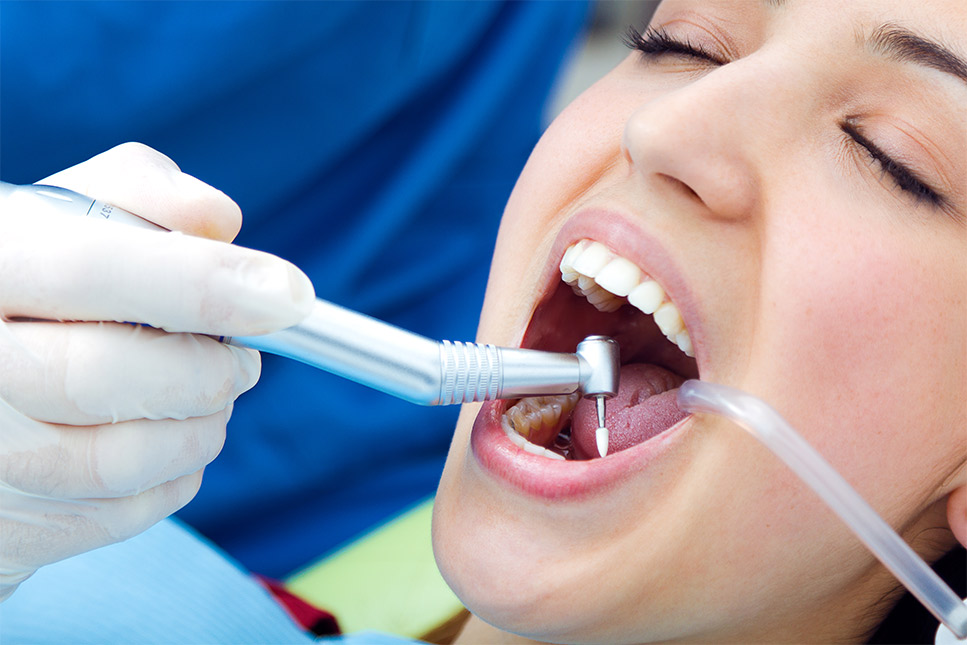
What is Teeth Hypersensitivity, and How Does it Develop After Tooth Fillings or Bondings?
Teeth sensitivity can be uncomfortable, especially after dental fillings or bondings. These procedures are done to repair damaged teeth because of tooth decay, or trauma or enhance their appearance, but they can sometimes lead to increased sensitivity. This blog will explore why teeth become sensitive after fillings or bondings, discuss ways to prevent or care for sensitive teeth, and highlight available treatment options.
What Causes Teeth Sensitivity After Fillings?
Teeth sensitivity after tooth fillings or bondings can occur due to a few common reasons. One main cause is the removal of the protective enamel during the procedure. Enamel protects the underlying dentin, which contains tiny tubules connected to the nerves of the teeth. When the enamel is removed, these tubules become exposed, making the teeth more sensitive to external stimuli.
Another factor can be the materials used in fillings or bondings. Some individuals may have increased sensitivity or an allergic reaction to certain components in these materials. This may also happen if the filling material is placed too close to the nerve in deep cavities. This heightened sensitivity can result in increased tooth sensitivity after the procedure.
In some situations, if the filling or bonding material changes the tooth’s shape, it can cause an uneven bite, leading to hypersensitivity.
Caring for Sensitive Teeth After Fillings:
If you have teeth sensitivity after fillings or bondings, there are simple steps you can take to alleviate the discomfort and care for your dental health:
- Gentle Oral Hygiene: Use a soft-bristled toothbrush and toothpaste made for sensitive teeth. Brush gently to avoid further enamel erosion.
- Avoid Triggering Foods and Drinks: Steer clear of very hot or cold foods and beverages, as well as acidic or sugary items that can irritate sensitive teeth. Using a straw when consuming acidic drinks can help minimize contact with the teeth.
- Regular Dental Check-ups: Visit your dentist regularly for check-ups and cleanings. This helps identify and address any underlying issues promptly.
Treating Sensitive Teeth After Fillings:
If the sensitivity persists, it's best to consult your dentist. They can evaluate the cause of your sensitivity and suggest appropriate treatment options. Some common treatments for sensitive teeth after fillings include:
- Desensitizing Toothpaste or Gel: These products contain ingredients that help alleviate sensitivity by blocking the nerve signals in the teeth.
- Protective Coating or Sealant: Your dentist may apply a protective coating or sealant to the affected teeth, providing an extra layer of insulation and reducing sensitivity.
- Mouthguards or Night Guards: For those who grind their teeth (bruxism), wearing mouthguards or nightguards can help prevent further damage and sensitivity.
- Advanced Dental Procedures: In severe cases where other treatments are ineffective, your dentist may consider more advanced procedures like dental bonding or applying dental crowns to protect sensitive teeth.
Contact Vancouver Dental Specialty Clinic Today:
For the best care and personalized solutions for your sensitive teeth after fillings or bondings, don't hesitate to contact us at Vancouver Dental Specialty Clinic. Our experienced dentists specialize in treating dental hypersensitivity and can provide tailored solutions for your needs.
We understand the discomfort caused by sensitive teeth and are dedicated to helping you find relief and maintain optimal oral health. Schedule an appointment today and take the first step towards a pain-free and healthy smile.


